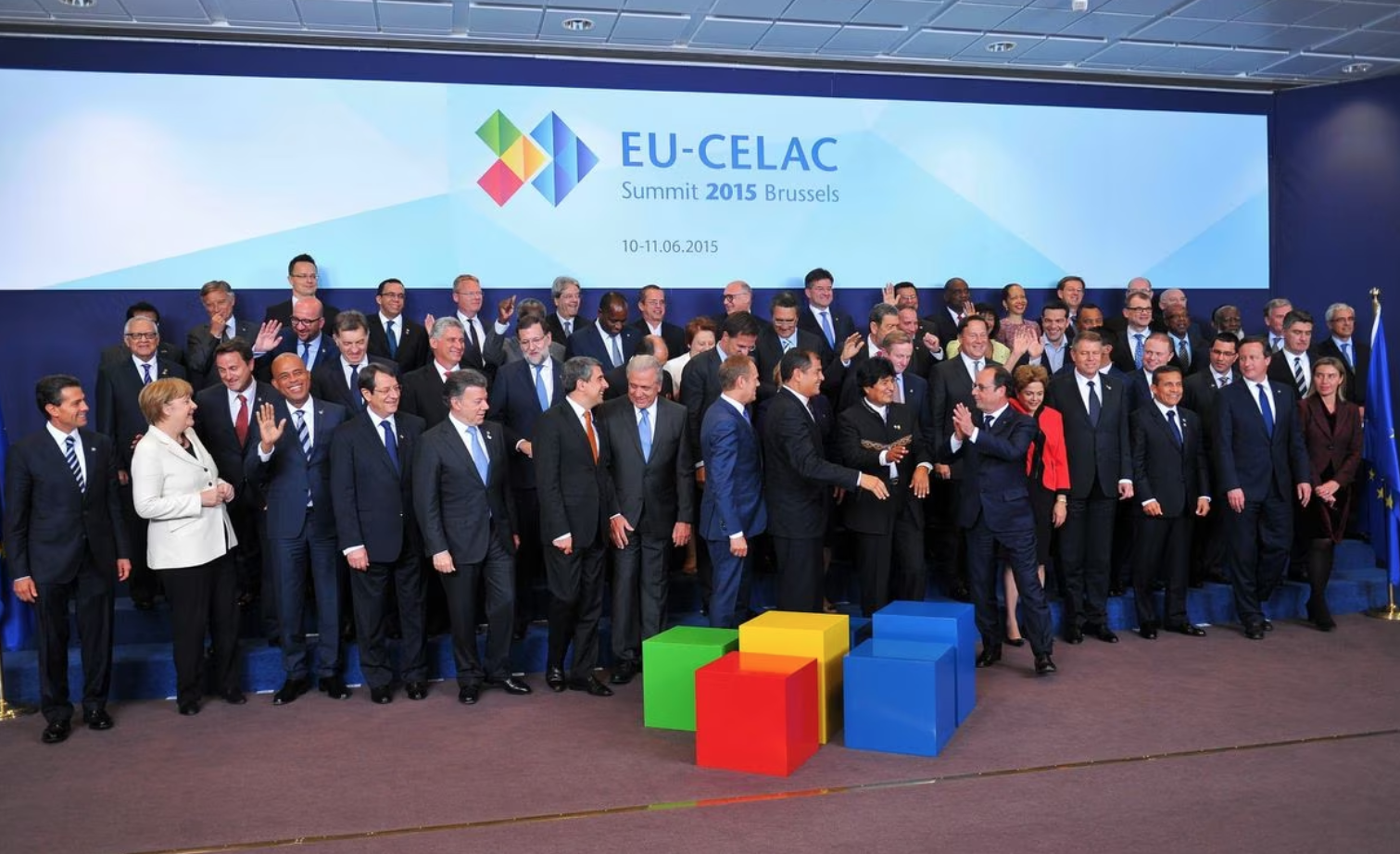Latin America and the European Union (EU) want to deepen their relations once again. A summit between the EU and the Community of Latin American and Caribbean States (CELAC), the first since 2015, will be held in Brussels, Belgium, in July 2023, and pending agreements, such as the EU’s with Mercosur, are scheduled to be concluded. In this framework, European politicians, such as the Chancellor of Germany, Olaf Scholz, have recently traveled to Latin America to explore how to deepen bi-regional relations.
There is no doubt that the strategic value of Latin America and the Caribbean has increased for the EU since the Russian invasion of Ukraine in February 2022. Politically, Latin American and Caribbean governments are important when it comes to voting on resolutions on Russia in the United Nations (UN) General Assembly. Economically, Latin America has raw materials such as natural gas and oil that Russia supplies to the EU, and strategically important raw materials are already imported from the region such as lithium. Due to its climatic and geographical conditions, Latin America is considered to have a large potential to produce and export green hydrogen at competitive prices among the different regions of the world. And Europe will be one of the biggest markets for green hydrogen in the future.
At the first Latin America-Europe Summit, held in Rio de Janeiro in 1999, the objective of developing a “strategic partnership” was announced. Since then, the term has appeared again and again in official statements and, most recently, the European Union High Representative for Foreign Affairs and Security Policy, Josep Borrell, went so far as to speak of a “strategic alliance” in connection with the association agreement between the EU and Mercosur, which has yet to be signed.
There are political and economic coincidences, but the question is: are there enough common interests in a strategic partnership? The preparatory meetings for the EU-CELAC summit and, more recently, Chancellor Scholz’s talks in Argentina and Brazil have shown that there is an elephant or, rather, a bear in the room that Latin America would like to overlook or, at least, not mention.
The war in Ukraine divides the EU and Latin America. What from a Latin American perspective seems a matter of choice (how to position itself in the Ukraine conflict vis-à-vis Russia), for Europe is a matter of necessity, namely to defend itself against a genuine military threat and an attack on fundamental European values.
It is symptomatic that the joint communiqué of the III EU-CELAC Foreign Ministers’ Meeting at the end of October 2022 in Buenos Aires avoided naming and condemning Russia, as expected by the European governments. At least the participating governments were able to reaffirm their support for the objectives and principles enshrined in the UN Charter of upholding the sovereign equality of all States and respecting their territorial integrity and political independence. In the context of this affirmation, the behavior of Latin American countries is even less understandable.
Moreover, from a European perspective, it is strange that a region, which has always (rightly) denounced the imperialism emanating from the United States, should today avoid condemning as imperialism a war to restore an empire and to subjugate (and if necessary) assimilate by force other peoples.
The statements of some Latin American governments are received with incomprehension in Europe, as is the case of the statement of Luiz Inácio Lula da Silva, President of Brazil, on the conflict in Ukraine when he affirmed that “two do not fight if one does not want to”, which is like blaming someone for being hit on the head by a person who has broken into his house.
Against the backdrop of the images we see daily in Europe of war atrocities, attacks on civilians, and refugees arriving from Ukraine, these statements seem insensitive, if not cynical. In turn, they have cost Lula sympathy in Europe and cast doubt on his ability to act as a mediator in the conflict.
Then there are those in favor of active non-alignment. Here the question arises whether it is possible that a policy of active non-alignment implies not taking sides indirectly by putting the aggressor on an equal footing with the victim. The point is that, if in a war in which the aggressor is clearly identified, civilians are being killed and war crimes are being committed, is a government not also complicit in doing nothing?
Latin American governments should ask themselves whether the world would be better off and whether it is in Latin America’s interest that the EU emerges weakened, but Russia (and indirectly China) strengthened from the conflict in Ukraine. This would mean, in turn, a defeat of the values that Latin American governments have so far defended in international politics, such as respect for sovereignty, non-intervention, and peaceful conflict resolution.
Active non-alignment only makes sense if it also defines the values one defends in international politics and, based on those values, decides when to take sides. Sometimes the old Pete Seeger song, “Whose side are you on?” also applies in international politics, especially among supposed strategic partners.
*Translated from Spanish by Janaína Ruviaro da Silva











